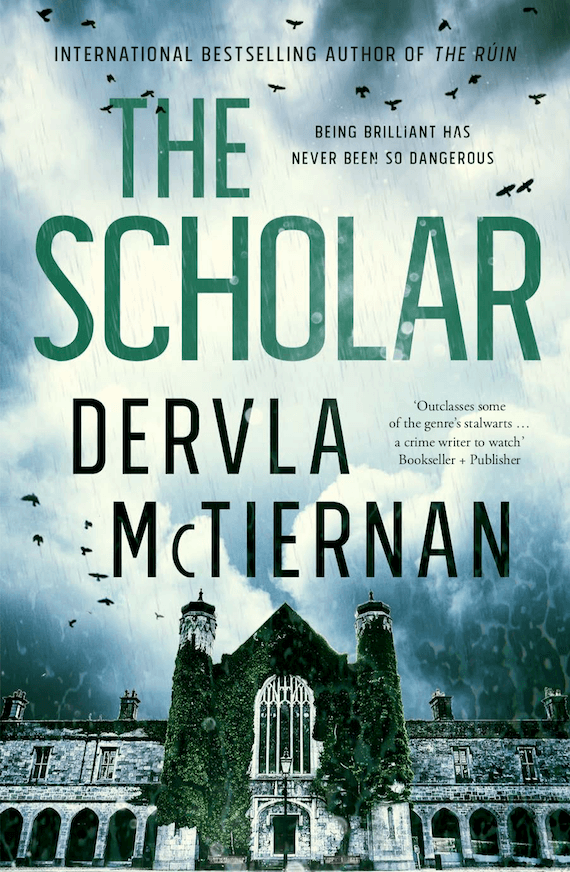
Can anyone truly know the law? So many crime novels are predicated on police ignoring conflicts of interest that you'd think they'd never heard of recusing themselves. The Scholar, Dervla McTiernan's second Cormac Reilly outing, appears to take the procedure out of the procedural, but it's not a bad novel for that.
DS Cormac Reilly, still a pariah at his police station, is first to a murder scene and appoints himself head of the case. Unfortunately, the key witness is his partner, Dr. Emma Sweeney, and Reilly chooses not to recuse himself. The case is overtly political, neither Reilly nor Sweeney are popular in their relatively new postings, and the corpse may not be precisely who it seems.
McTiernan is a cockeyed optimist when it comes to the law and capitalism: we can solve any crime and overturn any corruption if only we believe in ourselves. Her real weakness is that Reilly is not her strongest character, or even her strongest detective. One gets the impression that McTiernan wanted to write a novel about Carrie O'Halloran, who also featured in The Ruin, but was contractually obligated to focus on Reilly. O'Halloran is better developed than Reilly and more professional than him.
Yet McTiernan is an equal opportunity narrator, even providing vague motivations for a shadowy character before they are killed without supplying any answers. It means that she is not confined to Reilly's viewpoint, because he does not get up to much. The Ruin was historically his case, and The Scholar delivers the Emma backstory that was threatened earlier, but for the pure and satisfying police work, Carrie O'Halloran is a gift. Ian Rankin was able to place Siobhan on an equal — often greater, recently — footing with Rebus. McTiernan could do far worse than follow Rankin's lead.
The Scholar is a crime novel that leaves its secondary case completely dangling. It is the lesser case by far, but a flip back through the book afterwards reveals that, until it is casually mentioned in the epilogue, none of its elements appear after the 54% mark. It's a structural abnormality, more weird than detrimental to the overall work; it disappears when the main case becomes more convoluted than twisty. The outcome isn't exactly unlikely, but it is farfetched. McTiernan can plot, with more than a little chicanery, and the only element that needs to be overcome … and it's a big ask — is the conflict of interest inherent in Reilly investigating the case.
The Scholar is a relatively assured work from McTiernan, who has got most of the character notes right and just enough of the crime solving down. If her third novel manages to balance the characters without any of them blatantly ignoring the rules for no real reason, she can potentially secure her place in the crime pantheon. The Scholar is definitely one step closer.


